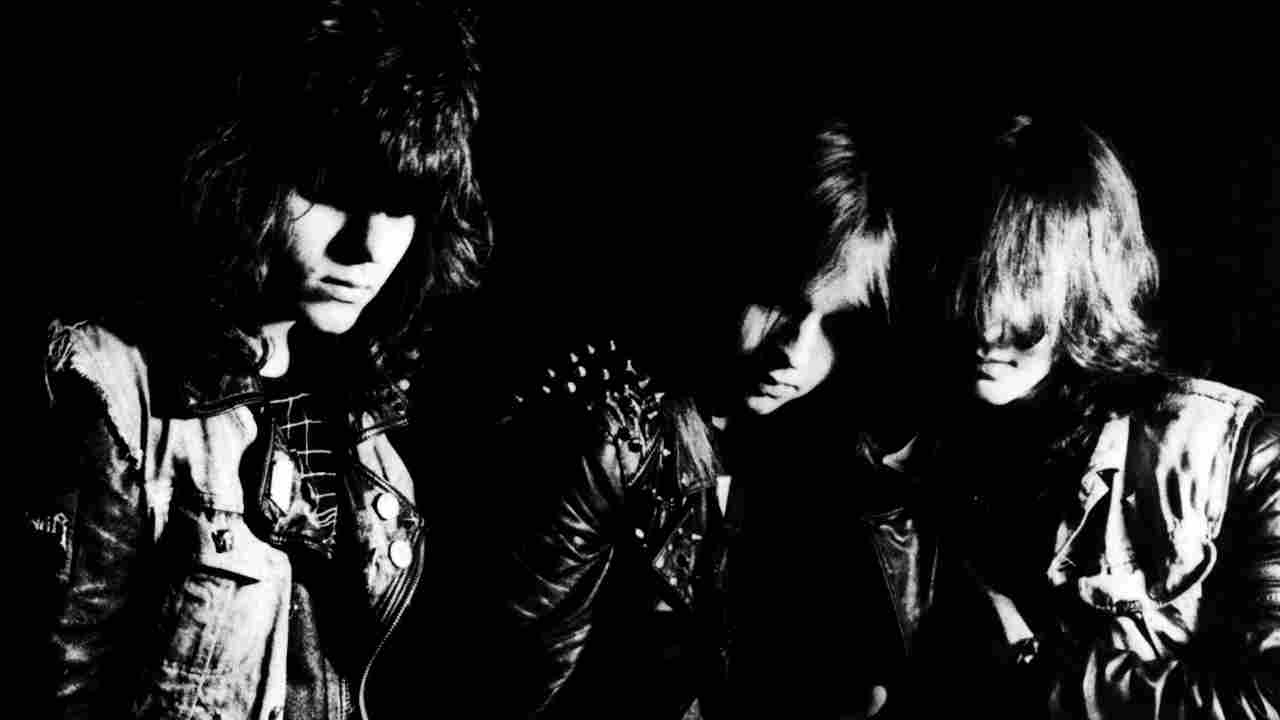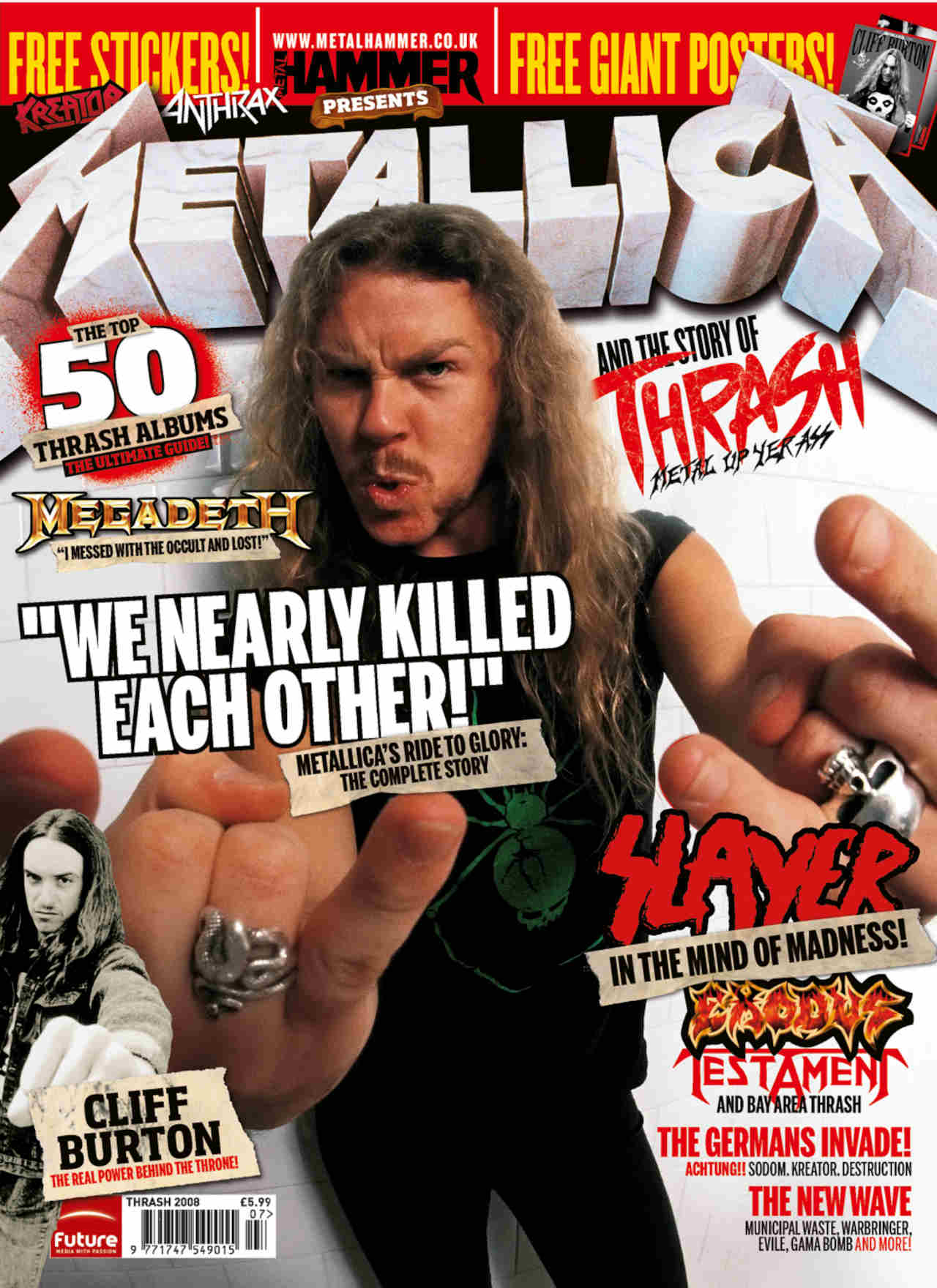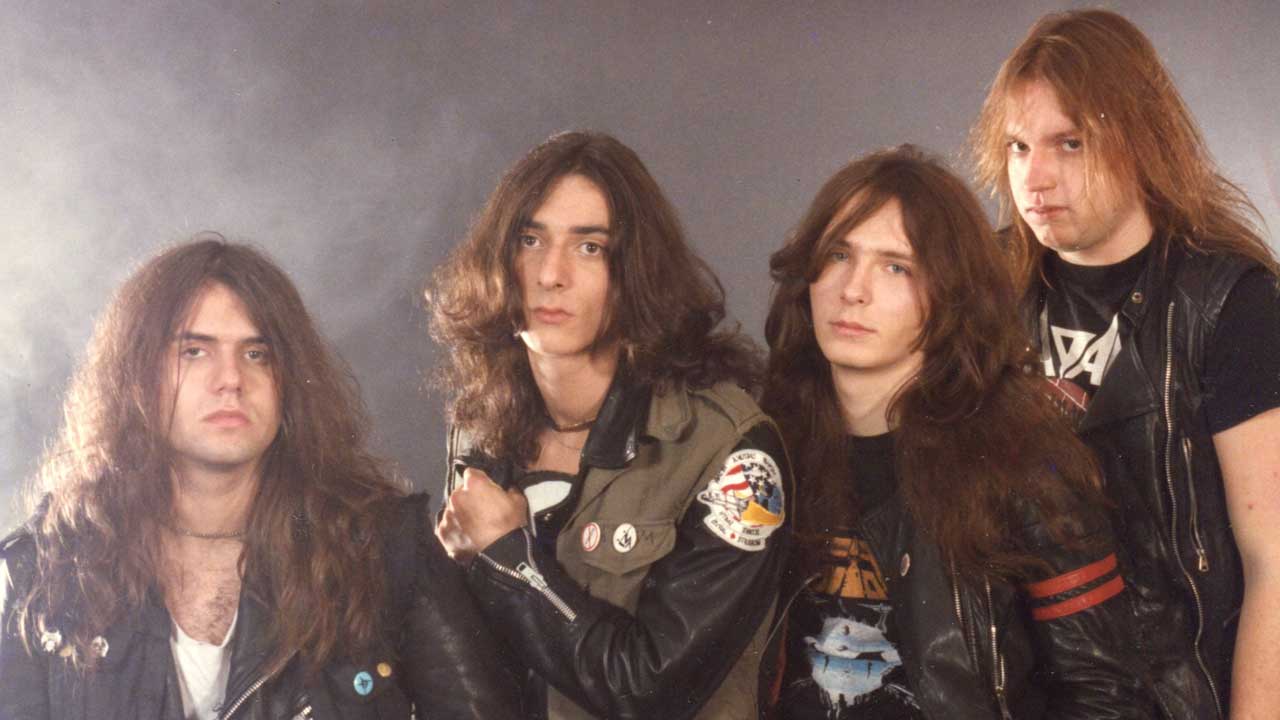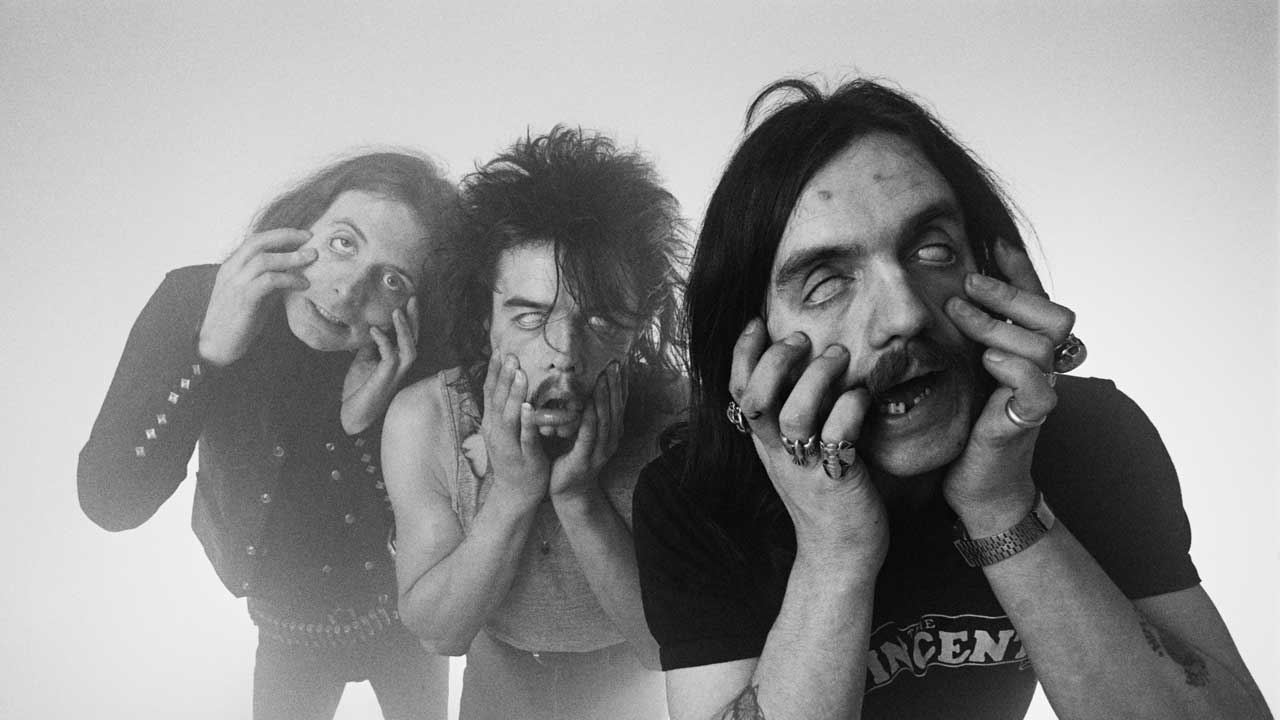“The English press used to call us ‘hate metal’. It fit the music”: How Kreator made Pleasure To Kill, the vicious 80s classic that put German thrash on the map
Kreator’s second album, Pleasure To Kill, proved that America didn’t have the monopoly on thrash

Select the newsletters you’d like to receive. Then, add your email to sign up.
You are now subscribed
Your newsletter sign-up was successful
Want to add more newsletters?

Every Friday
Louder
Louder’s weekly newsletter is jam-packed with the team’s personal highlights from the last seven days, including features, breaking news, reviews and tons of juicy exclusives from the world of alternative music.

Every Friday
Classic Rock
The Classic Rock newsletter is an essential read for the discerning rock fan. Every week we bring you the news, reviews and the very best features and interviews from our extensive archive. Written by rock fans for rock fans.

Every Friday
Metal Hammer
For the last four decades Metal Hammer has been the world’s greatest metal magazine. Created by metalheads for metalheads, ‘Hammer takes you behind the scenes, closer to the action, and nearer to the bands that you love the most.

Every Friday
Prog
The Prog newsletter brings you the very best of Prog Magazine and our website, every Friday. We'll deliver you the very latest news from the Prog universe, informative features and archive material from Prog’s impressive vault.
Germany was a beast unto its own in the mid-80s. The Brits may have invented heavy metal and the Americans turned it into a global commodity, but in Germany, metal was a way of life for millions of head-bangers, trained in the fine art of thrash by three specific bands – Kreator, Sodom and Destruction. By the mid-80s, the members of this unholy trinity were competing with each other to play the fastest and angriest, a competition given an early kickstart by Kreator’s debut album, Endless Pain, in 1985. Unfeasibly fast and amusingly lo-fi, the album promised much for the future – a promise which frontman and primary songwriter Mille Petrozza was determined to fulfil on his band’s next album.

Released in 1986, the nine unspeakably violent songs of Pleasure To Kill were a revelation. Part of this was due to the treatment applied to the songs by Kreator’s first professional producer, Harris Johns, as Mille recalls. “The situation was better than on the first album,” he says. “The producer for that one, Horst Müller, wasn’t interested in us. Even when we fucked up, he said, ‘Yeah, it’s fine!’ On Pleasure To Kill we worked with Harris Johns, who had worked with proper bands like Helloween. Basically, he made a good recording and he made us perform the songs in multiple takes. We had two weeks to do it, with three or four days for the drums and overdubs. It was really professional.”
However, most of Pleasure…’s impact came from the songwriting. The never-ending violence of the drums and riffs, layered beneath Mille’s hyper-aggressive vocals and apocalyptic lyrics, made the album a totally immersive experience. Kreator’s inspiration couldn’t have been more extreme. “When we went into the studio, we had Seven Churches by Possessed – we wanted to be like that!” recalls Mille. “We played that and Slayer’s Hell Awaits to Harris when he asked us what we wanted to sound like and he said, ‘I can give you a better sound than that!’”
But this was back in 1986 – even the best studios and producers couldn’t make an album this extreme sound completely polished. After the mellow intro, the band leapt into Rippin’ Corpse, an insanely aggressive song.
Mille laughs as he recalls the youthful vitriol that went into that song and the ones that followed. “We were young kids full of enthusiasm,” he says. “Kids who wanted to sound like the bands they listened to. We were tape traders: we’d listen to all kinds of stuff from the metal underground – Hirax, Sepultura, Possessed, Death. We just wanted to be part of that scene, and when I listen to Pleasure To Kill now, that’s what I hear.”

Violent song upon violent song follows, with Death Is Your Saviour sounding like a sped-up outtake from a live Exodus or Slayer album. Drummer Jürgen Reil (whose stage name is the superb ‘Ventor’) recorded the vocals on this and other songs: his voice, an untrained roar like that of Venom singer Cronos, perfectly complements the more refined hiss of Mille. Talking of Mille’s vocal style, which sounded viciously angry, the vocals led to some bright spark on a UK music mag labelling Kreator ‘hate metal’. A whole new genre tag, eh? Quite an honour, surely?
“The English used to call us ‘hate metal!’” chuckles Mille. “It comes from the Flag Of Hate EP, released between Endless Pain and Pleasure…, but also from the way I sang at the time – really high-end screaming. It fit the music, though. Nowadays we add some traditional heavy metal elements and some punk rock, but we are and always will be a thrash metal band.”
Sign up below to get the latest from Metal Hammer, plus exclusive special offers, direct to your inbox!
The title track, a stone-cold metal classic which remains in the Kreator live set to this day, comes next. Its inspiration will send a shudder down the spine of any 1970s film buff. “I had this film called Faces Of Death,” says Mille. “And the title Pleasure To Kill came from a section in the film about animals killing other animals. I had this concept about different ways of dying: every song on the album is about a different way to die.”
This explains the death-obsessed nature of the rest of the songs – Riot Of Violence, The Pestilence, Carrion and so on, all of which deal inventively with the slight matter of shuffling off this mortal coil. Command Of The Blade and the self-explanatory Under The Guillotine finish off the album. Noise Records confused everyone shortly after releasing Pleasure To Kill in 1986 by reissuing it as a picture disc and retitling it After The Attack, with the only change an additional song of the same name. “I don’t know why we renamed the album for a reissue,” shrugs Mille. “It had the same cover art, but no re-recordings or anything. I don’t think we knew what we were doing back then. Y’know, I was a kid when I recorded Pleasure To Kill – 16 or 17 years old! We never had the time to explore because we were so young. We were just trying out different things – becoming musicians, really.”
The Pleasure To Kill picture disc is a must-buy if you can track it down, because the artwork is stunning. A depiction of a muscular demon beating up a bunch of skeletal attackers, the image suits the music perfectly and was the first appearance of the ‘Kreator demon’ who adorns the band’s album sleeves to this day. “Back in the day, Noise were very creative, very concerned with the artwork,” says Mille. “We weren’t – we were just kids and didn’t care. They had a deal with an artist called Philip Lavere who gave them a couple of artworks – he also did Emperor’s Return by Celtic Frost. He’d already done the artwork and it was perfect for the album.”
Anyone who’s read Are You Morbid?, the autobiography of Celtic Frost frontman Thomas Fischer, will recall the horror stories he told about Noise Records and the way they treated their bands. Does Mille also have less-than-fond memories of the label that also gave us Coroner, Helloween and Tankard? Apparently not. “We had our problems with them, but it wasn’t a nightmare. Not everything they did was great – they made some mistakes, especially at the end [of our contract], when they weren’t supporting us. But they discovered us when we were kids – we weren’t expecting a record deal. They signed us and made us the band we are now. And I don’t forget that. I’m not bitter about anything that they did.”
After Kreator completed their contract with Noise, they made the step up to Epic for a series of disappointing albums in the 1990s. What was all that about then, Mille?
“In the 1990s, the metal genre was in an identity crisis; I’d be lying if I said that we weren’t, too. But it was important for us to make those experimental albums – we had to find our way. In any case, on those albums our thrash roots never completely went away. It’s hard to keep a balance sometimes – to go too deep into the experimental thing and forget your roots and what you stand for. With art in general, you think, ‘It’s my project, I’m going to do it the way I want.’ I’m not nostalgic, though. I never look back!”

The band returned to a thrash sound in recent years. “Completely,” he admits. “We were fed up with the experimental sounds so we said, ‘Let’s do another thrash album.’ Kreator is a band with thrash roots – we’re strongest when we play what we do best. And that’s thrash metal – in the Kreator style.”
So how does Mille look back at Pleasure…, 28 years on? “Technically, there’s stuff that’s more complex on Coma Of Souls or Enemy Of God,” he muses. “Those albums are more melodic, whereas Pleasure To Kill was very chaotic. It still had a structure, though.”
As for bands who cite Pleasure To Kill as an inspiration – where does Mille stand on the new thrashers?
“Those kids are influenced by what we’ve done in the past, but it’s all great! If they’re discovering what we did 20 years ago, it’s like a manifesto for what this whole scene is about. Metal should be about saying, ‘Fuck you and everybody else – I’m going to do my thing!’”
Originally published in Metal Hammer Presents Metallica And The Story Of Thrash (February 2014)
Joel McIver is a British author. The best-known of his 25 books to date is the bestselling Justice For All: The Truth About Metallica, first published in 2004 and appearing in nine languages since then. McIver's other works include biographies of Black Sabbath, Slayer, Ice Cube and Queens Of The Stone Age. His writing also appears in newspapers and magazines such as The Guardian, Metal Hammer, Classic Rock and Rolling Stone, and he is a regular guest on music-related BBC and commercial radio.
You must confirm your public display name before commenting
Please logout and then login again, you will then be prompted to enter your display name.


